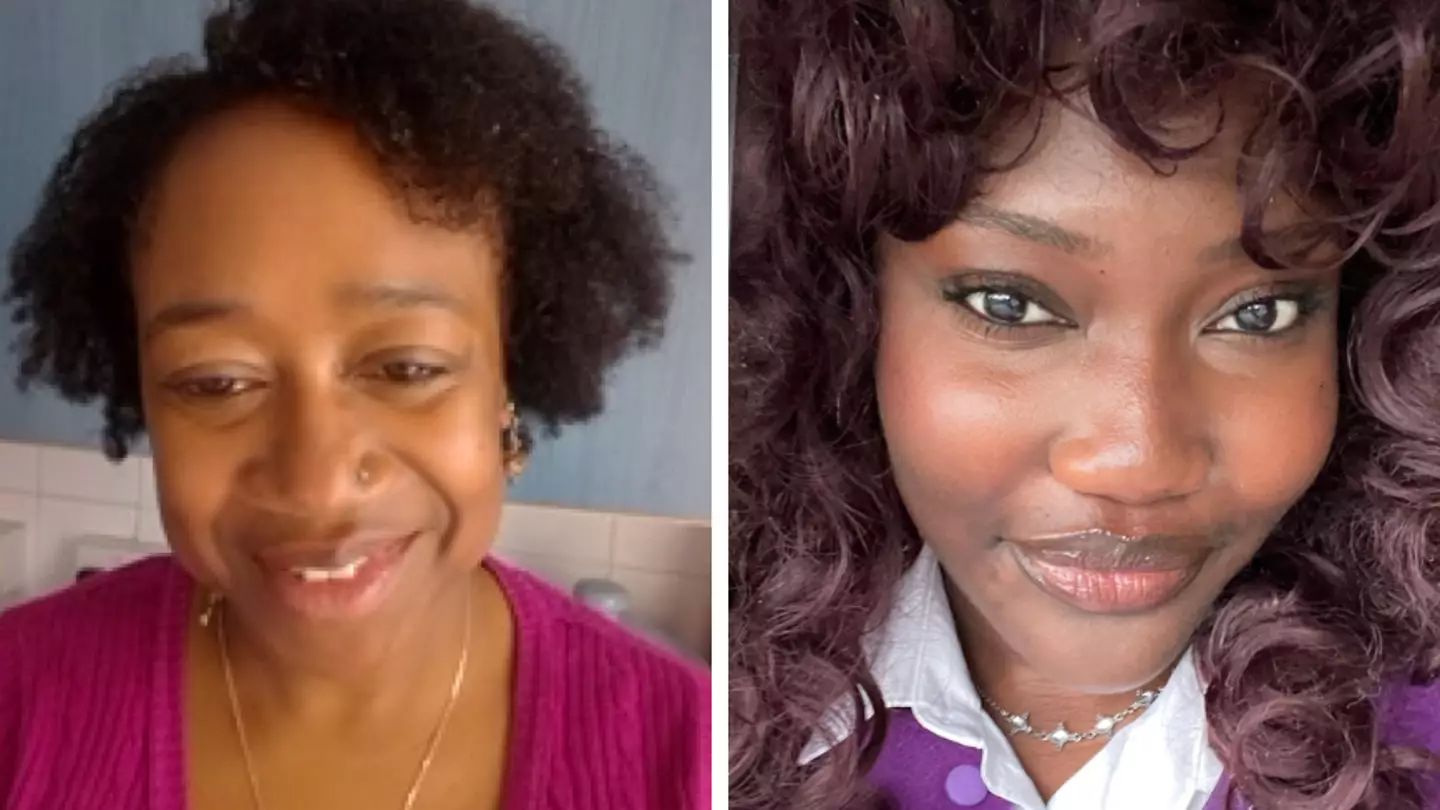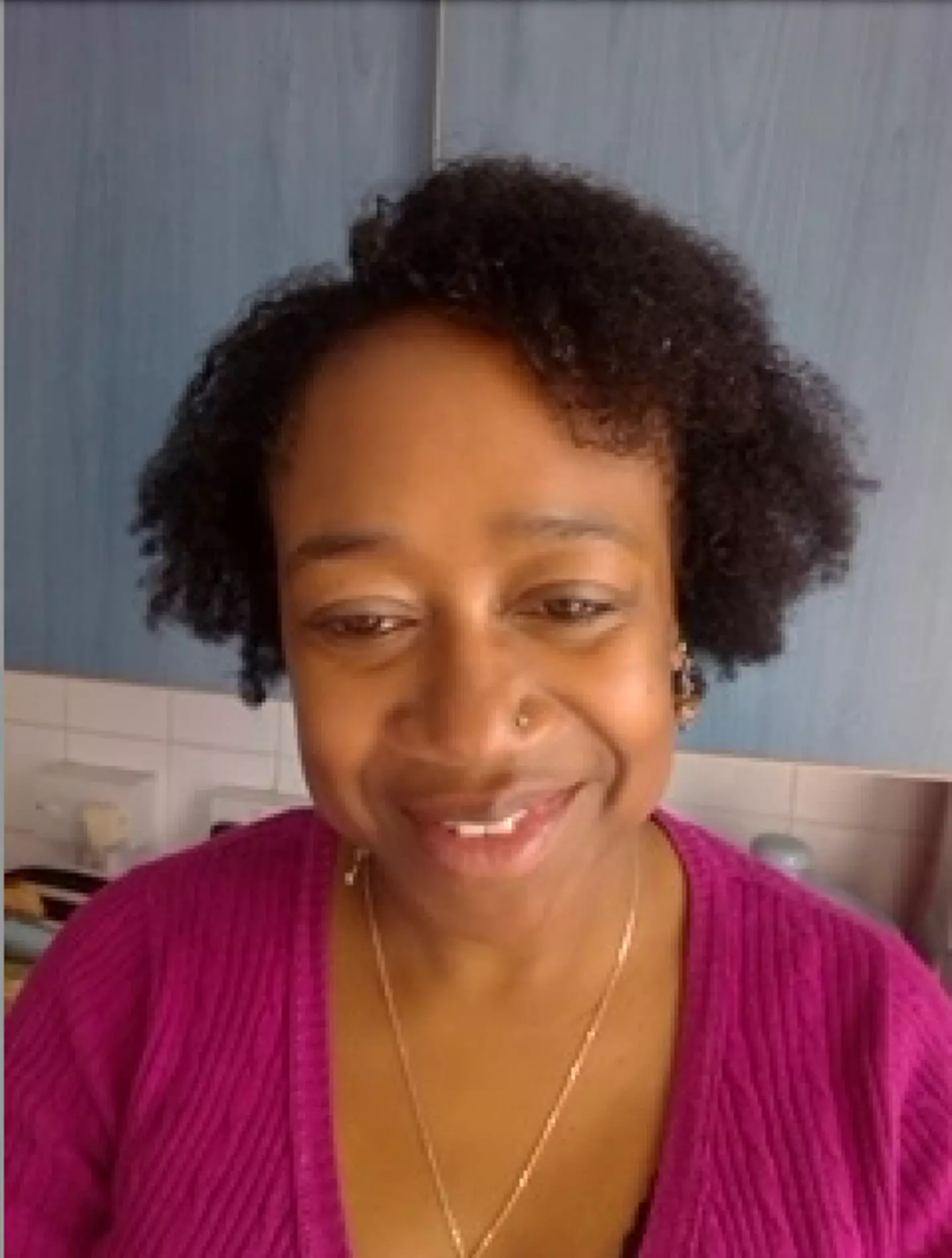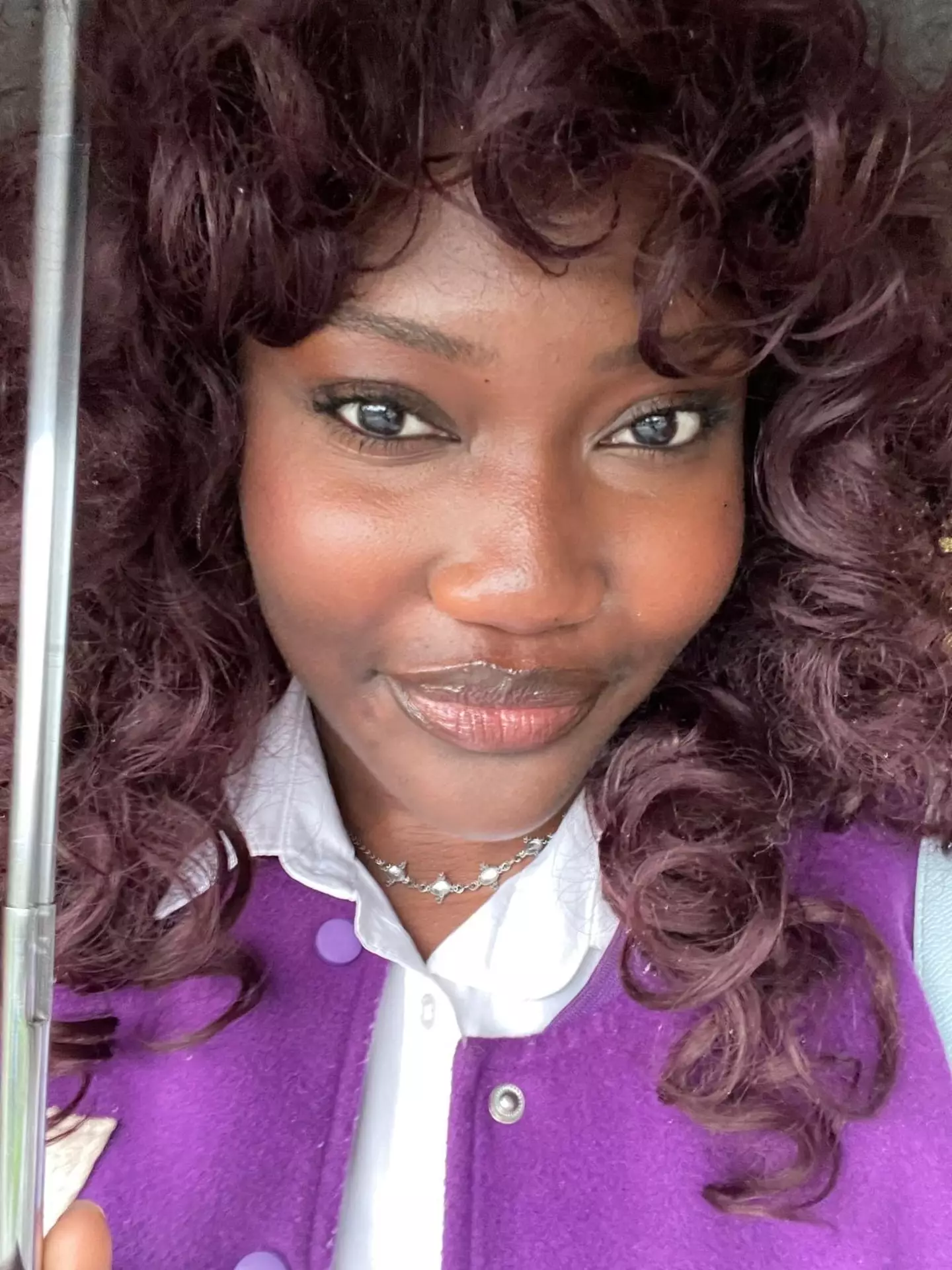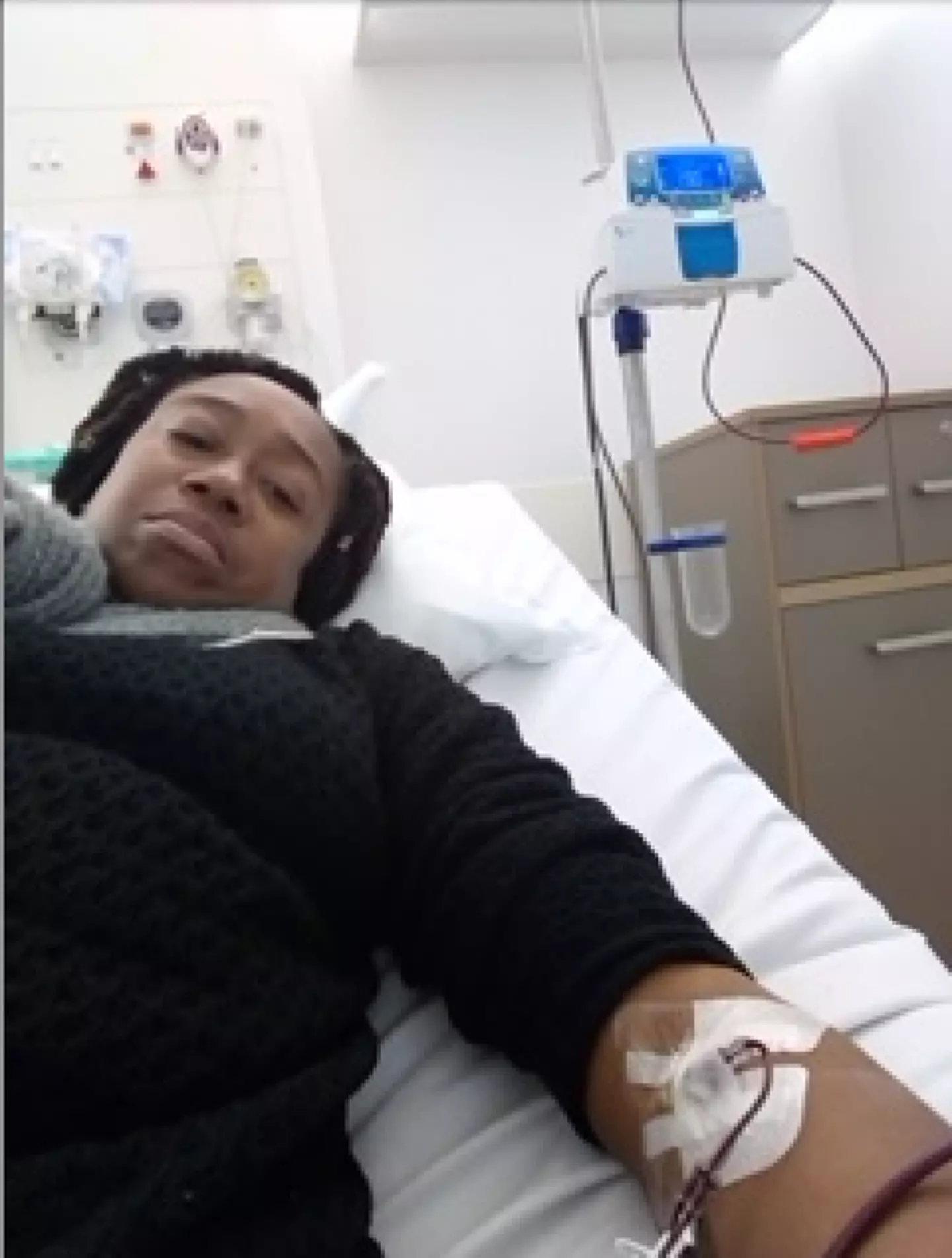
"I have to be just honest, and say I wouldn't be here. I wouldn't be talking to you today."
Linda's words sound dramatic, but they're true - she wouldn't be here today if it wasn't for the people like Zenith who donate their subtype Ro blood to help people with sickle cell disease.
More than half of Black heritage blood donors have the blood type needed by sickle cell patients compared with just three percent of the general population and the disease is also 'particularly common in people with an African or Caribbean family background', according to the NHS.
This October, which marks Black History Month, Tyla spoke with Linda, as well as blood donor Zenith about the process of blood donation and what it means to them.
Advert
Linda found out she had sickle cell disease at three months old - her parents finding out after taking her to the doctors to report her not 'feeding well' and appearing 'very weak and lethargic'.
She didn't properly understand her condition until she started primary school, when her mum had to let the teachers know, and Linda was left unable to participate in certain activities.
Linda explains she was even told by a consultant she should get a 'desk based job' when the time came for her to leave secondary school - a suggestion based off the 'fatigue,' easy breathlessness and 'joint pains' she experiences as a result of the disease.
Linda explains to Tyla: "It was already mapped out early for me [...] what I would be able to do."

To live with sickle cell disease, Linda now requires blood transfusions every four weeks.
And the NHS' Blood and Transplant department is calling for 12,000 more donors of Black heritage by 2024 to help improve the symptoms - and ultimately save the lives - of those with the disease.
It was thinking about her brother's future which made Zenith decide to give blood.
The 20-year-old university student always wanted to donate blood after her younger brother, Charming, was diagnosed with sickle cell disease.
Despite having a fear of needles - and still being 'very afraid' of them - Zenith explains it's a very easy process giving blood.
Once you get to the blood donation site, you have to fill out a sheet with 'simple questions,' asking about current medications, if you've had the flu jab and basically just 'if anything's changed since your last appointment,' Zenith explains, although she notes it's a bit 'more thorough' at your first appointment, going over tattoos, piercing and more detailed medical history.
After the form, Zenith says you're given 'lots of water' as have to be 'really hydrated,' you'll also receive a text the night before and morning of your appointment to check you've had a good meal. And then you're sent off to a room to check your iron levels are safe and then the donation begins.
Zenith adds: "It's a really quick process, I thought it would take a lot longer. [...] If it's not busy, you could probably be out of there like 30 minutes, but if it is busy, then it might take like 45 minutes to an hour but usually like it only takes me 30 minutes to full process."
And to get over her fear of needles? Well, Zenith calls her mum. And the student notes it's more than worth it, seeing donating her blood 'like paying it forward'.
She says: "Obviously I could never repay the people that have helped my brother, but I feel like [... I'm doing] my part to help other people the way people help my brother."

As a result of receiving blood transfusion - only possible as a result of donors like Zenith - Linda's pain has been kept 'manageable' and ultimately kept her away from 'sickle cell crisis'.
Sickle cell crisis being 'when the red cells clog together in any area of the body, and then you're definitely in excruciating pain having to go in for a lot of pain relief medication intravenously," Linda explains.
Linda used to have the blood transfusions once every six months when she was younger, but now requires them more frequently.
She has to go into hospital for blood tests, then two days later she receives medication for various allergies she's developed as a result of having transfusions for so long, and then she's given two units of blood.
"It's an all-day process. I'm there from like nine to about four," Linda says. "Once you've had that transfusion, then it's still the next three days, I'm home, recovering from my body adjusting to this new blood."

While Linda is left feeling 'quite groggy and unsteady' for a few days following the transfusion, she notes it's a small price to pay when without the blood donation, she 'wouldn't be here'.
She says: "Wow. Well, yeah, I have to be just honest, and say I wouldn't be here. I wouldn't be talking to you today.
"Because it's definitely keeping me alive. It's giving me at least that lease of - I can do something with life, you know? With what I've got. So it's amazing."
Zenith adds: "If you're on the fence about donating, but I would ask you to think about how you would feel if someone that you loved or like a family member or friend was in the position that they needed blood, but then they couldn't get their blood, the blood that they needed?
"And then how would you feel like if they could get the blood they needed and your donation is literally the difference between something going right or something or wrong for someone in that position?"
To find out more about giving blood you can visit the NHS Blood Donation's website.
